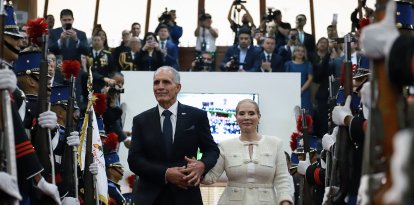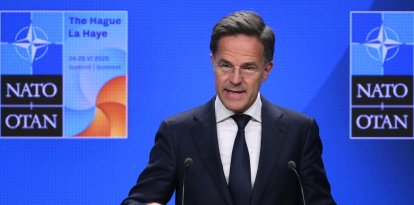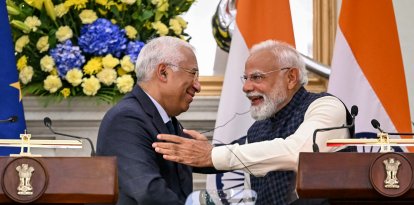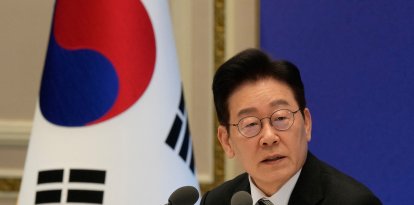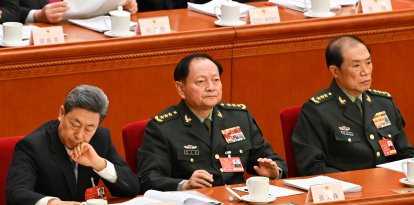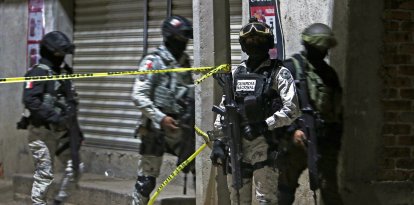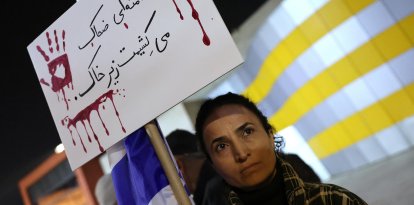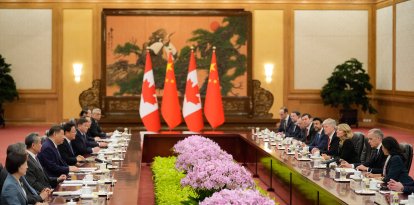Covert operations bringing Iran closer to "possible first nuclear test"
Reports from various European agencies reveal the Islamic regime's attempts to circumvent European and U.S. sanctions.

(Unsplash)
The Iranian government is allegedly conducting covert (and illegal) operations to acquire knowledge and material that would enable it to develop its own weapons of mass destruction. This is according to reports from various European agencies, collected by the Middle East Media Research Institute (MEMRI). Based on these reports, it appears that Iran is circumventing U.S. and European sanctions. The intelligence report of the Rheinland-Pfalz, Germany, explains the reason for these efforts:
Another document from the Swedish Security Service summarizes these efforts:
What's the goal?
Reports from Germany, Sweden and the Netherlands show that the Iranian regime is seeking the applied knowledge, materials and technology necessary to develop a nuclear program, such as uranium and centrifuges:
However, these efforts may have subsided in recent weeks. "Iran has significantly slowed the pace at which it is accumulating near-weapons-grade enriched uranium and has diluted some of its stockpile," sources briefed on the matter told the Wall Street Journal. The day before, it was reported that Biden had reached an agreement with Iran to exchange prisoners.
Iran’s international efforts
These nuclear efforts take place "daily," according to the same report. It will take a widespread effort, which include the exploitation of Western educational centers:
This is stated by the Netherlands General and Intelligence Security Service, which also cites the case of an Iranian scientist "associated with a sanctioned institute" who tried to acquire "relevant (applied) knowledge" at a Dutch university. Authorities claim to have intervened in time.
"Iran engages in industrial espionage," explains the Swedish agency. This "is mainly aimed at the Swedish high-tech industry and Swedish products that can be used in nuclear weapons program," and sometimes includes setting up businesses as fronts in European nations.
The effort to stop Iran
The German judiciary announced last year that it had begun proceedings against a German-Israeli citizen who allegedly sold laboratory equipment to Iran without a required license. Identified as Alexander J., he allegedly sent 1.1 million euros ($1.2 million) worth of material to an Iranian company that was blacklisted by the EU as a front to fund the nuclear program, according to Reuters.
Iran’s nuclear efforts are also attempting to penetrate the United States. The U.S. Department of Defense (DOD) claims to have pursued several similar cases: "Pourghannad falsified shipment documents and used front companies to export carbon fiber to Iran in violation of U.S. sanctions." This is how Assistant Attorney of National Security John C. Demers explained Behzad Pourghannad's 2019 prison sentence.
That same year, a Turkish national pleaded guilty to using his company in Turkey, Ramor Group, to purchase marine equipment, such as high-powered outboard engines, manufactured in Wisconsin. According to the DOD, the material could be used to build a prototype high-speed missile attack ship.
In another case, a Chinese national named Sihai Cheng was sentenced to nine years in prison in 2019 for providing material that could be used to manufacture nuclear-weapons-grade uranium. Cheng acknowledged smuggling manufactured goods from Massachusetts to Iran.
United States seeks nuclear deal
President Biden promised in his campaign that he would reach a new nuclear deal with Iran. So far, he has not complied. Secretary of State Antony Blinken told the media that the administration had approached Iran but found no willingness to cooperate.
Blinken explained that they intend to draft something similar to the previous agreement, albeit with some modifications. Trump withdrew the U.S. from the deal in 2018, arguing that the Islamic regime was continuing to enrich uranium.
Talks between the two governments to release detainees have been accompanied by rumors of a new attempt to sign a nuclear agreement.













